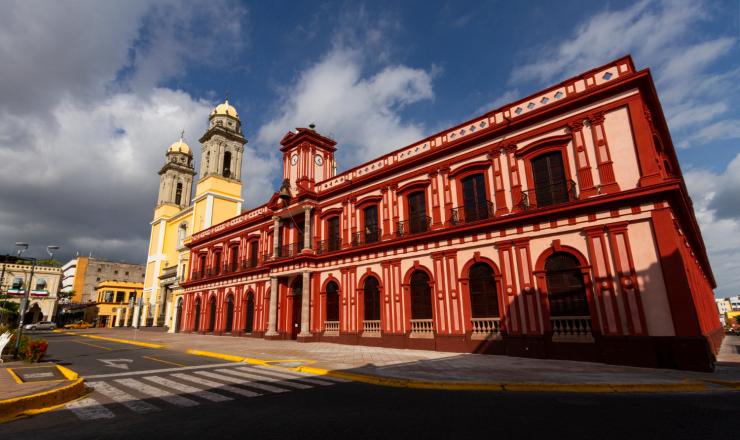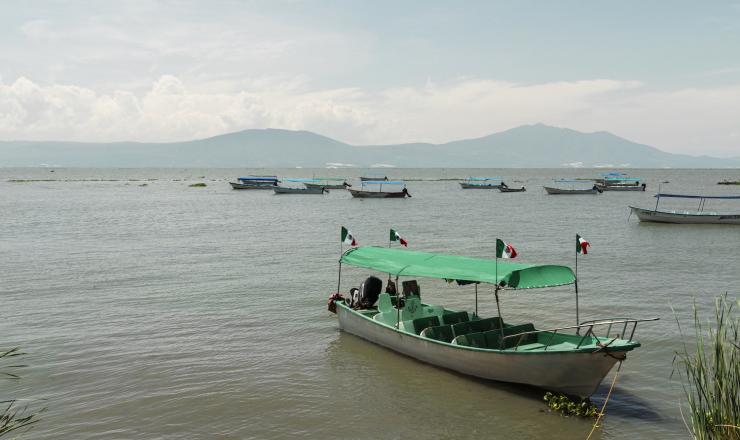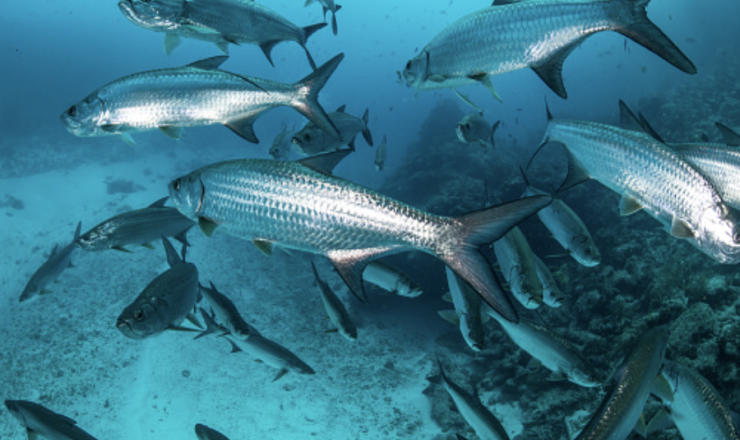UCSB Global Engagement is pleased to announce the selection of three UCSB recipients of the UC Alianza 2023 Seed Funding Opportunity for Mobilities to Mexico. Through this opportunity UC Alianza is partnering with the 10 UC campuses to further enhance student engagement between the UC and Mexico.

Ben Olguin, English Department & Interdisciplinary Humanities Center
Convivial Praxis Workshop for Community-Based Researchers Summer Ateneo 2023: A Binational Multi-Organizational Partnership
Awarded $36,200 for 12 students
Dates: June-July 2023
Website: https://globallatinidades.ucsb.edu
This ground-breaking initiative is part of Dr. Olguin’s year-long Convivial Praxis Workshop for Community-Based Researchers. The Oaxaca initiative, based in the Global Latinidades Center at UCSB, is an international venture that includes multiple partners in Oaxaca, Mexico. Professor Olguín has spent two years developing these partnerships and infrastructure with the goal of offering supplemental training for community-based researchers that respects the autonomy of grassroots communities. The funding from this award will allow 12 students to participate, up from 8 last year.

Tom Dudley, Marine Science Institute
Environmental Assessment of Rancho Encinalito Conservation Reserve
Awarded $30,000 for 10 students
Dates: October 2023
Website: http://rivrlab.msi.ucsb.edu/
Encouraged by Mexico’s commitment to the UN Convention on Biological Diversity a landowner in Mexico wishes to donate land for conservation and environmental education purposes, with possible development of a research and outreach program jointly managed by the UC Natural Reserve System and Mexican NGOs.
This award will bring together a group of graduate students and near-completion undergraduates with research interests in the impacts of climate change. Their interests lie in vegetation, wildlife, hydrology and water quality, arthropods (esp. pollinators), invasive species, as well as remote sensing for GIS applications. Students will stay at the location, collect data on their specific interests and then work as a team to interpret their results. The Output will be a formal assessment of the ecosystem and how humans could best interact with it. Pronatura Noroeste, which is engaged in environmental protection throughout NW Mexico, would provide critical guidance and resources. Pronatura Noroeste also manages the adjacent Sierra de la Laguna Biosphere Reserve which itself would benefit from investigations relevant to this unique landscape.

Steve Gaines & Liliana Sierra Castillo, Bren School of Environmental Sciences and Management
The "blue transformations" in small-scale fishing communities: Factors mediating successful transformations from small-scale fisheries to aquaculture
Awarded $15,100.00 for three students
Dates: July 14- July 31, 2023
Website: NA
Our project will work with communities that are transitioning from fisheries to aquaculture in Baja California Sur.
The main learning goal of this Mobility is for students to learn the value of conducting environmental justice research by working alongside community members to assess how different transitions affect diverse stakeholders. Participants will learn how to conduct interviews, surveys, and direct participant observations with community members and local stakeholders (i.e., government agencies and non-governmental agencies). In addition to working on a systematic literature review of national fishery documents of Mexico, they will learn how to analyze the datasets they create, and how to compile strategic communication and education materials to deliver to Mexican agencies and communities.
The expected outcome of this Mobility is the development of guidelines and frameworks that partners and communities can use to implement future aquaculture projects in small-scale fishing communities. The goal is to enhance their adaptive capacity by considering the communities’ cultures, local contexts and the system’s resilience in Baja California Sur, Mexico.
We anticipate this research will subsequently expand to other communities that are transitioning to aquaculture elsewhere in Baja California Sur and other areas in Mexico (i.e., Morelos, Nayarit, Jalisco).